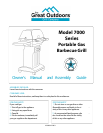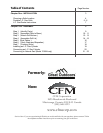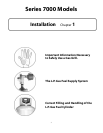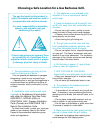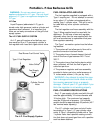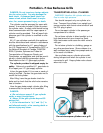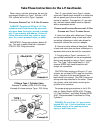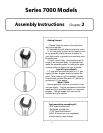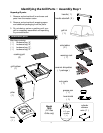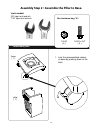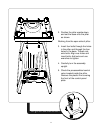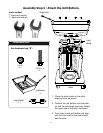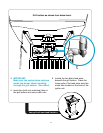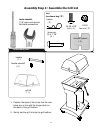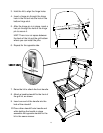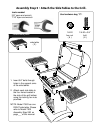Special offers from our partners!

Find Replacement BBQ Parts for 20,308 Models. Repair your BBQ today.
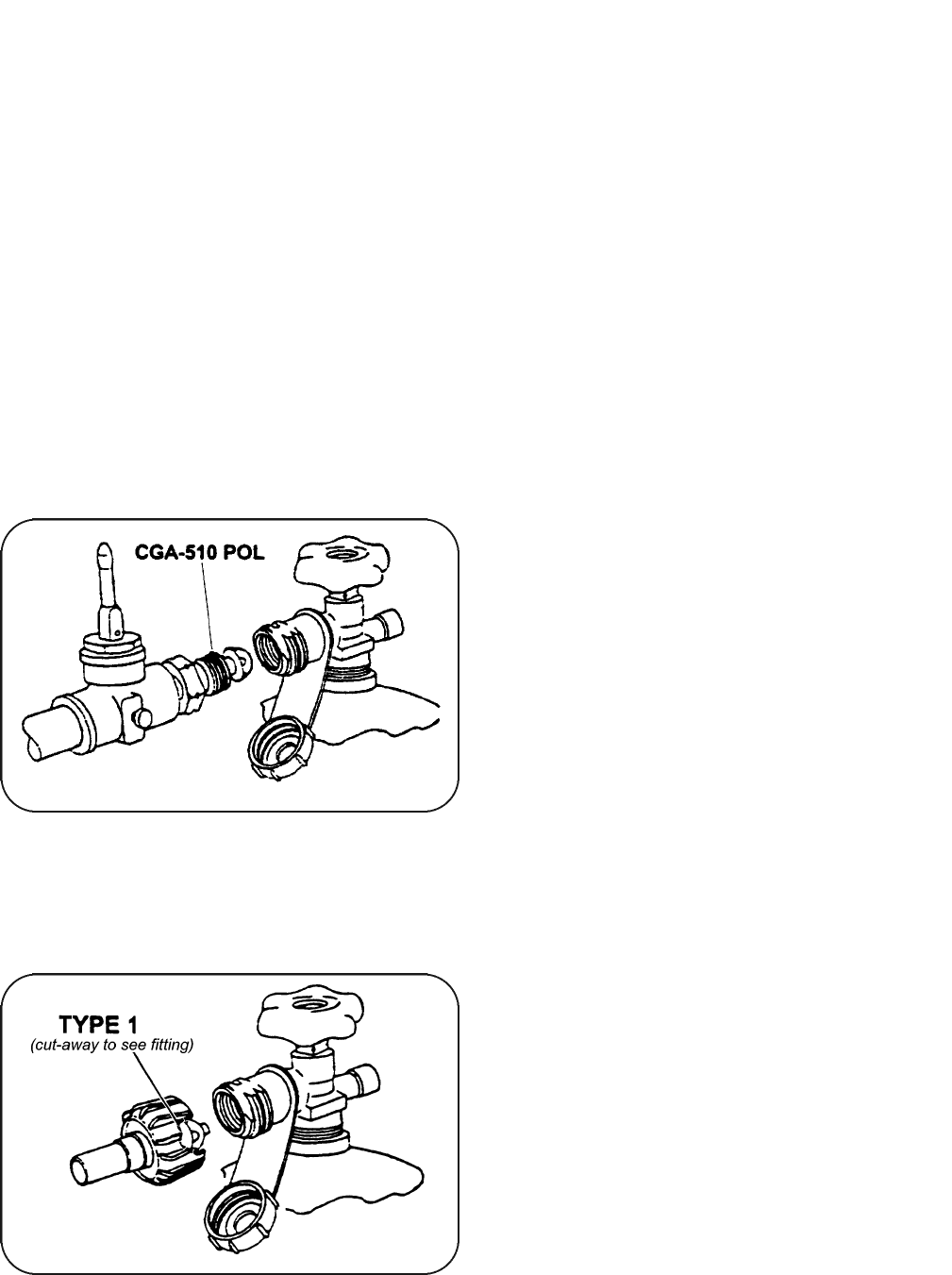
Filling a Type 1 Cylinder Valve
Example A: shows a CGA-510 POL fitting.
Example B: shows using a Type 1 POL fitting.
When using a cylinder exchange, be sure the
exchanged cylinder is a Type 1 cylinder; a 510
POL cylinder will not fit a Type 1 regulator.
FILLING AND PURGING TYPE 1 L.P. GAS CYLINDERS
DANGER! Purging and filling of L.P. Gas
cylinders must be performed by personnel
who have been thoroughly trained in accept-
ed L.P. gas industry procedures. Failure to
follow this instruction may result in explo-
sion, fire, severe personal injury, or death.
IMPORTANT: Purge new cylinders before fill-
ing. This tank is easily filled with a standard
CGA 510 POL filling connection.
The L.P. gas cylinder has a Type 1 cylinder
valve with a back-check module in its outlet that
will not permit gas to flow until an evacuation
device is installed. To purge the L.P. gas cylin-
der, the back-check module must be opened
with an evacuation device.
PURGING AND EVACUATION DEVICES FOR L.P. GAS
CYLINDER WITH TYPE 1 CYLINDER VALVES
A. Hose-end valve with a bleed port: Purging
can be accomplished using a hose-end valve
containing a bleed port, which also allows for
evacuation without the use of an adapter.
B. Hose-end valve without a bleed port: When
a hose end valve does not have a bleed port, a
separate device must be used for evacuation.
C. Purging using a Type 1 connection: L.P.
gas cylinder evacuation can be accomplished
during each purging by using a Type 1 connec-
tion. The Type 1 valve outlet has an 1 5/16"
external ACME right-hand thread that will
accept this connection.
CAUTION: After purging or filling an L.P. gas
cylinder, do not insert a POL plug into the valve
outlet. Insertion of this plug will prevent the
back-check from closing. Use ONLY the provid-
ed cap and strap attached to the outlet. Close
the cylinder valve knob before returning the
cylinder to the customer.
For proper purging procedures in the U.S.A.
refer to: Safety Bulletin NPGA #133, “Purging
L.P. Gas Cylinders,” and Safety Bulletin NPGA
#130, “Recommended Procedures for Filling
Cylinders.”
DANGER: Do not fill an L.P. gas cylinder
beyond 80% full. If this information is not
followed exactly, a fire causing serious
injury or death may occur.
7
Example A
Example B
Take These Instructions to the L.P. Gas Dealer.



